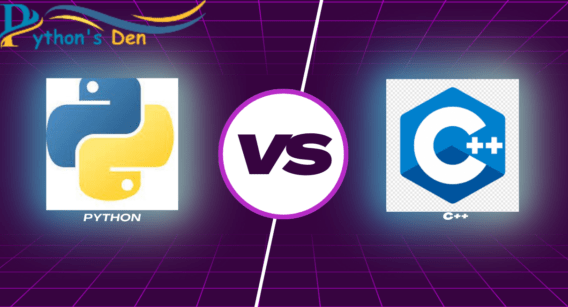Python vs C++: Differences, Difficulty, Popularity, Salary and Career Options
Introduction Of Python vs C++
In the world of programming, it’s essential to select the correct language for your tasks. Two well-known programming languages, Python and C++, each serve a different purpose and have particular advantages and disadvantages.
Differences Python vs C++
Python
A high-level, dynamically typed, interpreted language known for its readability and clarity is called Python. It has a substantial standard library and supports a wide range of programming paradigms, such as procedural, object-oriented, and functional programming. The building of websites, data analysis, machine learning, and scripting are all common uses for Python.
C++
Contrarily, C++ is a statically typed, compiled language with exceptional performance and low-level hardware resource control. It is commonly used in performance-critical applications, embedded devices, game creation, and system programming. Procedural, object-oriented, and generic programming paradigms are all supported by C++, and manual memory management is also supported.
The primary differences between Python and C++ lie in their syntax, performance, and level of abstraction. Python emphasizes simplicity and ease of use, while C++ focuses on efficiency and fine-grained control.
Difficulty Python vs C++
Python
Python is sometimes regarded as being simpler to learn and read because to its clear and uncomplicated syntax. It has an easy learning curve, which makes it a great option for novices. Tasks related to development are further made simple by Python’s broad standard library and strong ecosystem of third-party packages. However, learning more complicated ideas and speed optimization in Python may take more time and effort.
C++
On the other hand, because of its intricate syntax and numerous language features, C++ has a steeper learning curve. For beginners, concepts like memory management, pointers, and template metaprogramming can be difficult. Manual memory allocation and a greater understanding of computer architecture are required for C++. Nevertheless, mastering C++ allows for more effective code execution and offers a solid foundation in low-level programming ideas.
Popularity Python vs C++
Python
Both Python and C++ are extremely popular, although for various reasons. Python’s adaptability and simplicity of usage have helped it become extremely popular in recent years. It is widely used in many different fields, such as machine learning, data science, and web development (using frameworks like PyTorch and TensorFlow), as well as web development (using libraries like NumPy, Pandas, and TensorFlow). Python’s widespread use is partly credited to its helpful community and thorough documentation.
C++
The programming language C++ has a long history and is widely used across a wide range of industries. It continues to be well-liked for low-level control and high performance applications like embedded systems, game creation, and system programming. When performance and direct hardware access are important, C++ is frequently used.
Salary Python vs C++
Salary prospects for Python and C++ developers can vary depending on factors such as experience, location, industry, and specific job roles. Generally, both languages offer good earning potential.
Python
Due to the extensive range of applications for the language, Python coders are in high demand. The typical annual income for Python developers, according to several wage data sources, ranges from $70,000 to $120,000, depending on experience and region. Python-trained data scientists and machine learning engineers can make even more money.
C++
C++ developers, particularly those with expertise in low-level programming and performance optimization, are in demand for critical systems and performance-critical applications. The average annual salary for C++ developers ranges from $80,000 to $130,000, again depending on experience and location.
Career Options Python vs C++
Python and C++ offer diverse career options and can lead to exciting job opportunities.
Python
Careers in web development, data analysis, machine learning, artificial intelligence, scientific computing, automation, and more are all possible with Python. You may work in a variety of sectors, including technology, finance, healthcare, and research, thanks to Python’s adaptability.
C++
System programming, game development, embedded systems, robotics, high-frequency trading, and performance optimization are all career paths made possible by C++. Experience with C++ is highly prized in fields that need effective, low-level code execution.
Both languages provide a solid foundation for further learning and can serve as a gateway to exploring other languages and technologies.
Conclusion
Python and C++ differ in terms of their traits and uses. In the fields of web development, data science, and machine learning, Python is renowned for its ease of use, adaptability, and widespread use. C++ is frequently used in system programming, game development, and performance-critical applications because it enables excellent performance and low-level control. Choosing a language relies on the particular project requirements and professional goals because both have advantages. Learning either Python or C++ can open doors to profitable professional prospects and innovative technology developments.
Related Content:
Python vs Java Which One is Better For You


